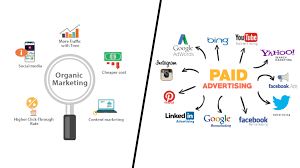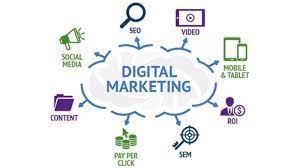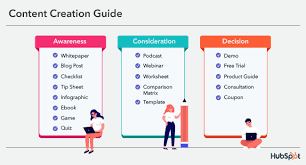The Power of Organic Digital Marketing
In today’s digital age, organic digital marketing has become a crucial strategy for businesses looking to establish a strong online presence and connect with their target audience in a meaningful way. Unlike paid advertising, organic digital marketing focuses on building long-term relationships with customers through authentic and valuable content.
What is Organic Digital Marketing?
Organic digital marketing encompasses various tactics such as search engine optimisation (SEO), content marketing, social media engagement, and email marketing. The key principle behind organic marketing is to attract and engage audiences naturally, without relying on paid promotions or advertisements.
The Benefits of Organic Digital Marketing
One of the main advantages of organic digital marketing is its ability to foster trust and credibility among consumers. By consistently delivering high-quality content that resonates with your target audience, you can position your brand as an industry authority and build loyalty over time.
Furthermore, organic digital marketing is cost-effective compared to paid advertising. While paid campaigns can yield immediate results, organic strategies have a lasting impact and can generate sustainable traffic to your website or social media channels without ongoing investment.
Tips for Successful Organic Digital Marketing
- Focus on Quality Content: Create relevant and engaging content that adds value to your audience’s lives.
- Optimise for SEO: Use targeted keywords and optimise your website for search engines to improve visibility.
- Build Relationships: Engage with your audience on social media platforms and respond to their feedback to foster connections.
- Monitor Performance: Track key metrics such as website traffic, engagement rates, and conversion rates to evaluate the effectiveness of your organic strategies.
The Future of Organic Digital Marketing
As consumer preferences continue to evolve, businesses must adapt their digital marketing strategies to meet changing demands. Organic digital marketing provides a sustainable approach that prioritises authenticity, relevance, and customer-centricity – qualities that are essential for long-term success in the competitive online landscape.
Six Advantages of Organic Digital Marketing: Building Trust, Authority, and Sustainable Growth
- Builds trust and credibility with your target audience
- Cost-effective compared to paid advertising
- Generates sustainable traffic over time
- Positions your brand as an industry authority
- Fosters long-term relationships with customers
- Adds value to your audience’s lives through quality content
Challenges of Organic Digital Marketing: Navigating Slow Results, High Competition, and More
- Slow Results
- High Competition
- Resource Intensive
- Algorithm Changes
- Limited Reach
- Measurement Challenges
Builds trust and credibility with your target audience
Building trust and credibility with your target audience is a fundamental benefit of organic digital marketing. By consistently delivering valuable and relevant content that resonates with your audience’s interests and needs, you establish your brand as a reliable source of information. This trust not only fosters long-term relationships with customers but also positions your business as an industry authority, enhancing credibility and loyalty within your target market.
Cost-effective compared to paid advertising
Organic digital marketing offers a significant advantage in being cost-effective when compared to paid advertising. While paid campaigns can deliver immediate results, organic strategies provide a sustainable approach that generates long-term benefits without the need for continuous financial investment. By focusing on creating valuable content and engaging with audiences authentically, businesses can build trust and credibility over time, driving organic traffic to their online platforms without incurring ongoing advertising costs. This cost-effectiveness makes organic digital marketing an attractive option for businesses looking to maximise their marketing budget and achieve lasting success in the digital realm.
Generates sustainable traffic over time
An inherent benefit of organic digital marketing is its ability to generate sustainable traffic over time. By consistently producing valuable content and optimising for search engines, businesses can attract and engage their target audience organically. Unlike paid advertising that requires ongoing investment, organic strategies build a strong foundation for long-term success by driving consistent traffic to websites, social media channels, and other digital platforms. This sustainable approach not only increases brand visibility but also fosters lasting relationships with customers, ultimately leading to continued growth and success in the digital realm.
Positions your brand as an industry authority
Organic digital marketing has the remarkable ability to position your brand as an industry authority. By consistently delivering valuable and relevant content that resonates with your target audience, organic strategies establish trust and credibility within your industry. This positioning not only enhances brand reputation but also helps to differentiate your business from competitors, ultimately solidifying your authority and expertise in the eyes of consumers.
Fosters long-term relationships with customers
Organic digital marketing excels in fostering long-term relationships with customers by prioritising authentic interactions and providing valuable content that resonates with the target audience. Unlike short-term paid campaigns, organic strategies focus on building trust and credibility over time, leading to increased customer loyalty and engagement. By consistently delivering meaningful and relevant messaging, businesses can establish strong connections with their customers, ultimately driving repeat business and advocacy for the brand.
Adds value to your audience’s lives through quality content
Organic digital marketing excels in adding significant value to your audience’s lives through the creation and dissemination of high-quality content. By focusing on delivering relevant and engaging material that resonates with their interests and needs, businesses can establish a genuine connection with their target demographic. This approach not only helps in building trust and credibility but also ensures that the audience derives meaningful benefits from the content, leading to increased engagement, loyalty, and ultimately, long-term customer relationships.
Slow Results
Organic digital marketing strategies, while effective in the long run, are often associated with the con of slow results. Unlike paid advertising that can deliver immediate outcomes, organic approaches such as search engine optimisation and content marketing require patience and consistent effort to build momentum and see substantial results. This delay in seeing significant returns can be a challenge for businesses seeking quick wins or facing time-sensitive objectives. However, the enduring benefits of organic digital marketing, including enhanced credibility and sustainable growth, make it a valuable investment despite the initial time lag in yielding tangible outcomes.
High Competition
In the realm of organic digital marketing, one significant drawback is the high level of competition that businesses face in their efforts to secure visibility and engagement. As the focus on organic strategies grows, the online landscape becomes increasingly saturated with brands vying for attention. This intense competition necessitates a more strategic and nuanced approach to stand out amidst the sea of content, making it challenging for businesses to achieve significant reach and impact organically.
Resource Intensive
In the realm of organic digital marketing, a notable drawback is its resource-intensive nature. The process of consistently producing and upholding high-calibre content demands a substantial allocation of both time and resources. From conducting thorough research to crafting engaging materials, the endeavour to sustain an effective organic marketing strategy can be labour-intensive and financially demanding. This aspect poses a challenge for businesses aiming to strike a balance between investing in quality content creation and managing other operational priorities within their constraints.
Algorithm Changes
One significant drawback of organic digital marketing is the challenge posed by algorithm changes in search engines. These frequent updates can have a significant impact on organic search rankings, making it necessary for businesses to continually adapt their strategies to remain visible and competitive. The dynamic nature of search engine algorithms requires constant monitoring and adjustment, adding complexity and uncertainty to organic marketing efforts. This ongoing need for adaptation can be time-consuming and resource-intensive for businesses striving to maintain their online presence through organic means.
Limited Reach
In the realm of organic digital marketing, one significant drawback is the limitation in reach, particularly evident in the declining organic reach on social media platforms over time. This trend poses a considerable challenge for businesses aiming to expand their audience organically without resorting to paid promotions. The reduced visibility of organic content makes it increasingly difficult to reach a broader audience and engage with potential customers without investing additional resources into paid advertising strategies. As social media algorithms evolve and prioritise paid content, businesses must navigate this conundrum by refining their organic marketing tactics to maximise impact within the constraints of limited organic reach.
Measurement Challenges
Attribution and measuring the direct impact of organic marketing efforts on key performance indicators can present a significant challenge in the realm of digital marketing. Unlike paid advertising, where tracking conversions and attributing success is more straightforward, organic strategies often face difficulties in accurately quantifying their impact. The multifaceted nature of organic marketing, such as SEO, content creation, and social media engagement, makes it challenging to attribute specific outcomes solely to organic efforts. This complexity underscores the importance of developing comprehensive measurement frameworks and analytics tools to gain a deeper understanding of the effectiveness of organic digital marketing initiatives.








